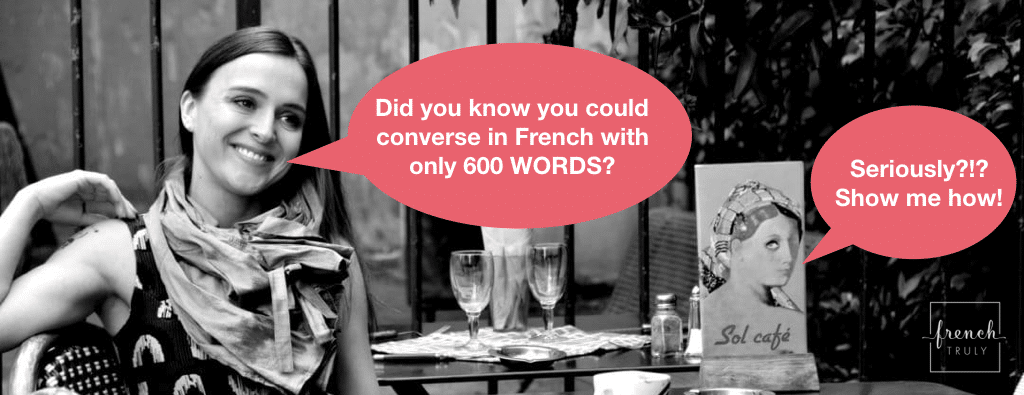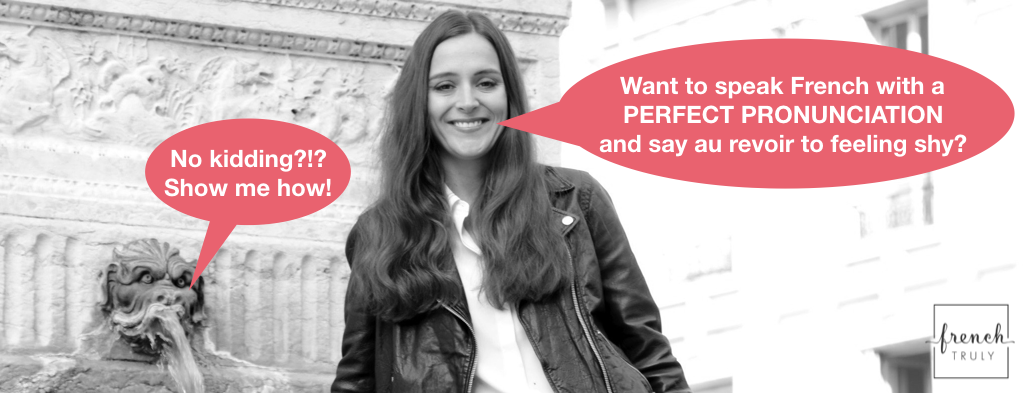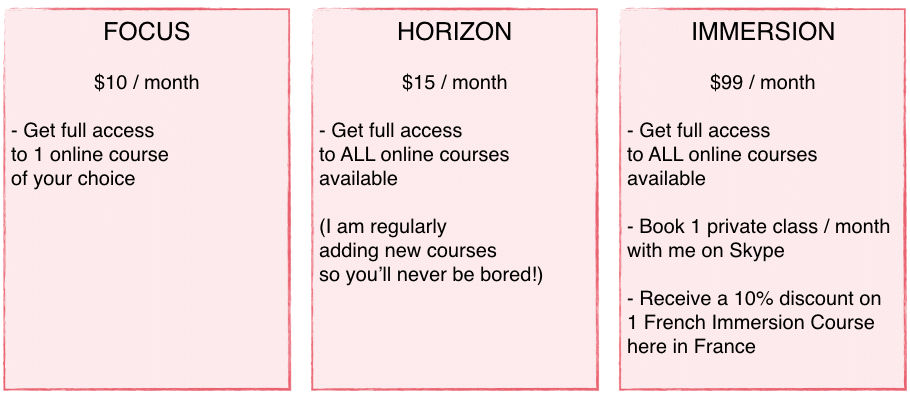I’m moving to Paris!!!
- Virginie Paradis

- Aug 8, 2019
- 11 min read
I haven’t made a video in a while, yet, did you know that I’m still with you every week on my website frenchtruly.com where all you need to do is click on the get started tab so you’re no longer missing out on my weekly blogs! I use many different techniques and approaches to teach you French, I don’t always need to use Youtube. So, if you haven’t already done so, click on this get started link and come join us, every week, for free, you’ll get tons of help in various formats: French videos with French subtitles to teach you about French culture, stories to test your comprehension, interviews, music, articles, events or courses that I host, honestly, come join us, you’ll love it!
Anyway I’m here now to tell you that:
1) I’M MOVING TO PARIS, IT’S OFFICIAL, I (finally) HAVE AN ADDRESS YEEEES!!!
2) Because I see every event as an excuse to learn something new, I’m going to use this super exciting move as an opportunity to teach you some French vocabulary and a few grammar rules, all with reference to moving to Paris!
Here’s what we’re about to cover:
1- Two verbs: déménager vs emménager
2- Weird adverb… mmmmh I wonder which one?
3- Conjugation: How do I choose between imparfait & passé composé?
4- Vocabulary, slang, & synonyms
… again, all of the above with reference to moving to Paris!
1- Two verbs: déménager vs emménager
We’ll begin with 2 verbs that most people get wrong, or don’t even realize that they are 2 verbs that are not interchangeable.
Déménager means to move out.
Emménager means to move in.
Déménager / emménager. Same idea, opposite perspectives. They’re both 1st group verbs so they’re regular, as easy as French conjugation gets. What does that mean? The root of the verb never changes, you just need to learn every single ending by heart. For instance:
Je déménage de Pélussin et nous emménageons dans notre nouvel appartement à Paris.
I’m moving out of Pélussin and we are moving in our new apartment in Paris.
In French it is the prefix that changes the meaning of the verb.
Dé-ménager = out VS Em-ménager = in.
The common root you can see in these 2 verbs is the word ménage. Ménage comes from the word maison, which means a house, a home. In English ménage means the members of a household.
– You may have also heard the expression faire le ménage, which means to do the housework.
Je fais le ménage tous les jours = I do the housework every day
Or, if you’re slightly less anal you could say: Je fais le ménage une fois par semaine = I do the housework once a week.
There is also the word une ménagerie which originally represents a collection of wild animals put together and then more figuratively a funny group of people and or animals. For instance, when my friend Laurent takes care of my dogs and given the fact that he also has one dog and one cat, I send him a text message, un texto, and I ask him: “Salut Laurent, comment va la joyeuse ménagerie aujourd’hui?”
Another word built from ménage is ménagère and that is a woman who takes care of her house.
And finally, if nothing I’ve just explained helps you remember our two verbs déménager et emménager, how about the expression ménage à trois? I’m sure you know this one. Same word! Ménage remember represents the number of people in a household. You’re moving your household out or you’re moving your household in. I leave it up to you to decide how many people that is 😉
2- Weird adverb… mmmmh I wonder which one?
Ok now let’s have a look at another typical mistake that people make with the adverb depuis, which means since. I’m going to give you the same sentence in French and in English and you’ll notice the tense changes.
Je cherche un appart depuis le mois de mai. (yes in French we like to cut words in half so appartement becomes appart)
I’ve been looking for an apartment in Paris since the month of May.
Notice that je cherche is the present tense. In English however, we use a past tense.
Do you see how the 2 languages express the same thing but from a completely different perspective? In French we focus on the fact that it’s still true today, I’m still looking for an apartment today even though I started in May, while in English I focus solely on the fact that I began searching in May, in the past. These little details show the important differences in mentalities between various languages, which I find fascinating.
Take expressions that use le verbe avoir – to have – in French, when in English we’d use le verbe être – to be:
For example: in English you are your age, I am 20, I am 30, I am 40 etc. In French you have your age, you just have it yet it doesn’t define you, it’s not who you are, which feels a little more freeing, I guess. Saying that, I’ve just come up with a new rule, every time someone asks how old I am I systematically answer 10 years younger. When people believe me, it makes me happy! Ooooh la vanité 😉
More seriously in French we say J’ai 20 ans, j’ai 30 ans, j’ai 40 ans, I have 20 years (don’t forget to add the word “ans”, otherwise it means nothing, you have 20… 20 what? glasses?? socks??? dogs???? years! You have 20 years! You have 30 years. You have 40 years, etc.
3- Conjugation: How do I choose between imparfait & passé composé?
These days one specific question keeps coming back from my private students so I thought I would add it here too: the difference between the main two past tenses in French l’imparfait et le passé composé. When do I use the imparfait? When do I use the passé composé?
I actually have a video dedicated to this topic called “Imparfait or Passé Composé? How to choose?” A general easy rule is imparfait takes time, it’s the background action, it’s descriptive.
In English look for:
– The ING form: I was eating. I was reading. I was running
– USED TO: I used to make that mistake. I used to go to bed early.
It implies you did many times, it implies repetition, it implies it took tiiiiime. That’s the imparfait.
Je cherchais un appart à Paris = I was looking for an apartment in Paris. I used to look, I looked and I looked and I looked and it took time! Je cherchais = imparfait.
When I was a child in France our classrooms were covered in chronology posters: Roman empire, la Renaissance, la révolution française, etc. Years. Decades. Centuries = imparfait. Until passé composé hits with some specific actions! Julius Caesar was assassinated in 44BC! Copernicus discovered heliocentrism in 1514! Louis XVI was beheaded in 1793!
To go back to my moving to Paris example:
Je cherchais un appartement à Paris (imparfait, it took a long time) que j’ai trouvé vendredi dernier (passé composé, I found it last Friday)
You see?
4- Vocabulary, slang, & synonyms
Finally here are some fun little words and expressions to say: “C’est pas facile de trouver l’appartement parfait à Paris!” It’s not easy finding the perfect apartment in Paris!
Notice by the way how I said c’est pas facile instead of ce n’est pas facile. You can do this, you can drop the ne from the ne pas. Personally I prefer the ne, but I’m also a bit of a snob 😉 and most people tend to drop it and you want to know how French people tend to speak!
C’est pas facile! How else could you express this same idea?
C’est pas commode!
C’est pas aisé!
C’est pas simple!
C’est complexe!
C’est dur!
C’est difficile!
C’est compliqué!
And in a bit of a slangy way:
C’est chaud! (yes that means it’s not easy)
C’est hard!
C’est balaise!
(Of course you know I’m pronouncing all these in this week’s video so watch it!)
And that’s it for now, that’s plenty of information! I showed you the difference between déménager & emménager, we looked at depuis and how it’s used in the present tense in French, I explained the main difference between imparfait and passé composé, and I gave you 10 ways to say it’s not easy, c’est pas facile.
And remember not to just wait for my videos on this Youtube channel French Truly TV but to come and join me by clicking on the get started tab to receive your free 3 step mini course to help you become a little bit French. This also means you’ll receive lots of free help from me every week! Finally, my new 2020 French Immersion Courses are open for registration now, and the courses will take place in March, April, and July 2020 in the US and in France! I’m adding this link to show you what our last immersion looked like, go have a look. It’s all written in French so you can practice at the same time!
——————————————————————————————————————————-
FRENCH IMMERSION COURSE – WEEKEND IN SEATTLE MARCH 2020
SEATTLE US 2020 March 7 & 8: This French Immersion Course is designed for intermediate level students – 7 spots left 2020 March 14 & 15: This French Immersion Course is designed for beginner level students – 5 spots left
If you’re unsure about your level, contact me to schedule a free Skype call
FRENCH IMMERSION COURSE – WEEK IN PÉLUSSIN APRIL & JULY 2020
PÉLUSSIN – FRANCE 2020 April 6 to 12: This French Immersion Course is designed for intermediate level students – 4 spots left 2020 July 20 to 26: This French Immersion Course is designed for intermediate level students – 4 spots left
If you’re unsure about your level, contact me to schedule a free Skype call
100% French Experience
What inspired me to create this French Immersion Course? C’est très simple: how best to improve your French conversation skills than by being in France, surrounded with French culture and French people who will ONLY speak French to you? Yet so many times I have heard visitors express their disappointment at not really being given the chance to practice their French. Why? Because more & more French people, especially in big cities, speak English fairly well and are just so excited to practice their new skills with you! This ends up being nice and comfortable for you but not so satisfying or helpful for improving your French speaking ability! So to fix this and make sure you have the most enjoyable, and at the same time profitable, French learning experience, I decided to create the perfect environment for you by organizing this hands-on French Immersion Course.
Daily French Classes & Activities
This is the reason why I have created this 7 DAY FULL FRENCH IMMERSION COURSE for you, filled with daily classes & enriching adventures with French people who will only speak French with you. No English! It’s amazing how much you can learn and retain in such a conducive atmosphere in as little as 7 days. Mornings will be dedicated to French language classes and afternoons will be filled with interesting activities such as: visiting local artists or entrepreneurs workshops, meeting with local wine makers and farmers, guided hike in nature, cooking class, painting class, cinema, & museum… all in French!
——————————————————————————————————————————-
WANT TO TAKE YOUR FRENCH TO THE NEXT LEVEL?
RECEIVE VIRGINIE’S FREE COURSE to Help You Become a little bit French in 3 Steps.
Learn French Online with Virginie via the French Truly Online School
Learn French with Virginie via her French Immersion Courses in France, in London UK, and in Seattle US.
Watch Testimonials from Virginie’s Happy Students!
Learn French online with Virginie
Join French Truly’s online school, either by buying the French online course(s) of your choice or by becoming a monthly member. See more details about the membership at the bottom of this page

Each French online course is packed with video & audio files along with written material, to make it as fun, easy, and user friendly as possible for you! Come and learn French online with me!

In this course, you will find 15 videos (+ 10 bonus ones) to help & accompany you every step of the way through the course + for each word, each sentence, each expression, each conjugated verb, I have created an audio file of my voice, slow and slightly faster speed. Your French language learning experience has never been so easy, fun, and fruitful. You can learn French online and benefit from the flexibility working at your own pace offers, while having me with you the whole time.
Did you know…
You can converse (speak + understand) in French with only 600 WORDS?
The average French person only uses between 300 & 3,000 WORDS?
This means that if you can master a relatively short list of words, you’ll be able to express yourself like the average French person! Plus you’re much more likely to understand the French when they talk back to you!
This course will teach you…
1- How to speak French
2- How to pronounce French
3- How to make French sentences
4- How to conjugate all the most common French verbs
5- How to polish your results
6- How to self evaluate your French
More info HERE
It should take you about 30 hours to complete this course, which is made up of 10 lessons
This course is designed for a beginner / intermediate level. If you are intermediate but feel like you could really reinforce your foundations, you will love it.
You can join whenever, either by buying the course or by becoming a monthly member giving you access to my French online courses from $10 / month. See more details about the membership at the bottom of this page


In this course you will find 11 videos + 150 audio files + 92 pages PDF format to help & accompany you every step of the way throughout the course. In some parts of the videos, my face will appear close up and profile so you can easily see how I make these sounds with my mouth. The 150 audio files are composed of the 100 most popular French words and the 50 most common French phrases. They are recordings of my voice, speaking slowly enough so you can easily grasp every syllable. Your French language learning experience has never been so easy, fun, and fruitful. You can learn French online and benefit from the flexibility working at your own pace offers, while having me with you the whole time.
NB: if you are the proud owner of my previous French online course 600 WORDS, don’t worry, this is not a repeat as we are now exploring 1 letter words and up, whereas in 600 WORDS we began at 4 letter words and up.
Combine knowledge with confidence…
For you to be able to have a pleasant and efficient conversation with a French person, one thing is key… can you guess what it is? Confidence! How well do you think you will communicate in French if you don’t feel confident about your accent? If you are scared that people won’t understand you? Or even worse if you think someone might make fun of you? Without a minimum of confidence there is no room for communication. Yet if you feel confident, you can afford to make a few mistakes here and there because people will still understand you. What prevents a conversation from happening isn’t just a lack of knowledge, it’s also a lack of confidence. You need to have both to make it work, not to mention, to make it fun!
This course will teach you…
1- How to pronounce every letter of the alphabet
2- How to pronounce every digraph & trigraph
3- How to make every French sentence flow
4- How to pronounce the 100 most popular French words
5- How to pronounce the 50 most popular French phrases
6- How to avoid the pronunciation mistakes everyone makes
More info HERE
It should take you about 20 to 2 hours to complete this course, which is made up of 11 lessons
This course is designed for a beginner level. If you are intermediate but lack confidence when it comes to talking and feel like you could really benefit from focusing on pronunciation, you will love it.
You can join whenever, either by buying the course or by becoming a monthly member giving you access to my French online courses from $10 / month. See more details about the membership below

Become a monthly member!

My goal is to transform your French language learning experience. This is why I’ve decided to offer you a new way to learn French online and gain access to the French Truly Online School! Actually, more than 1 new way, you’ll have 3 plans to choose from so come and learn French online with me!
Whichever you pick, FOCUS at $10, HORIZON at $15, or IMMERSION at $99, you will always be free to either upgrade or downgrade, stay or leave.
Not a membership kind of person? Don’t worry! Every course can still be bought separately at the normal price and be yours for ever. Whichever format you choose, your French language learning experience has never been so easy, fun, and fruitful. You can learn French online and benefit from the flexibility working at your own pace offers, while having me with you the whole time.





%20(6).png)
Comments